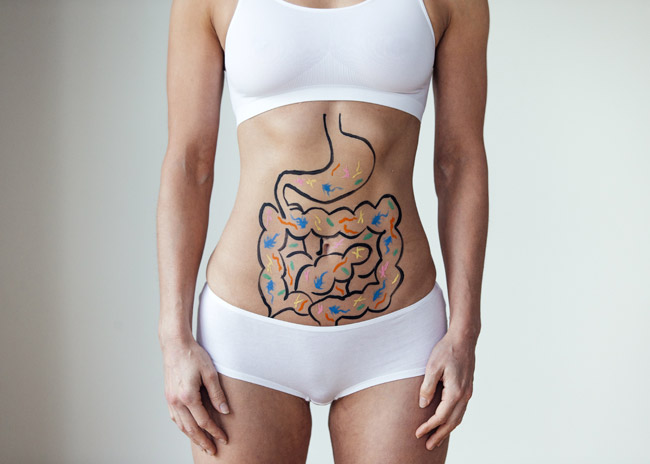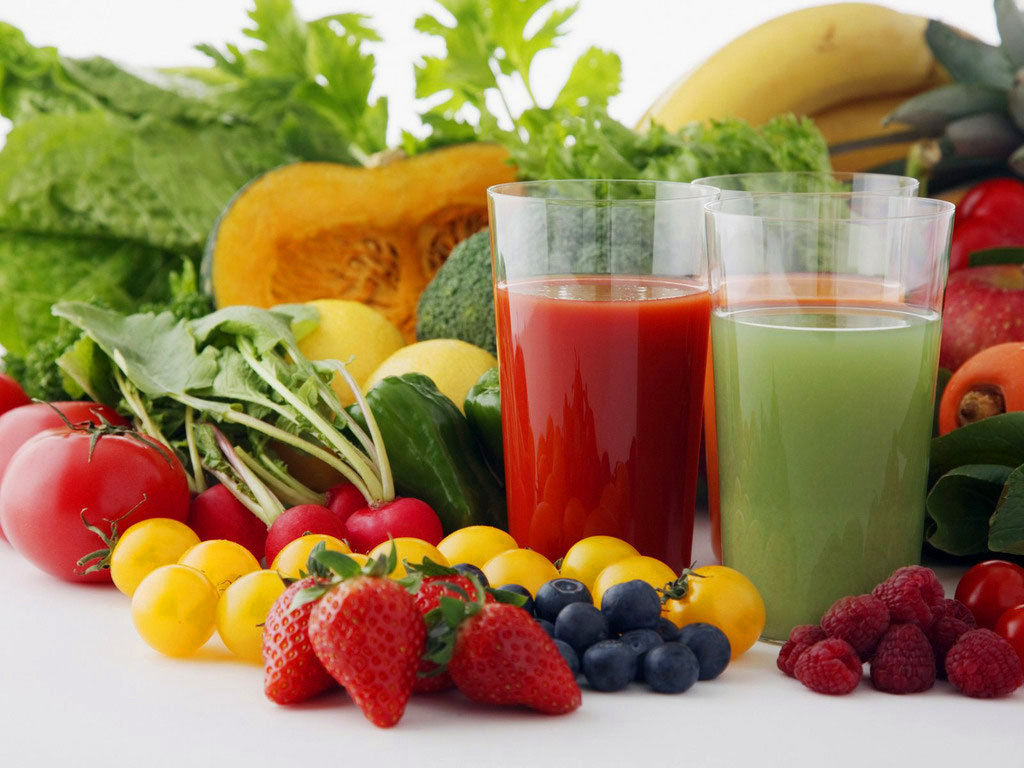
What is a probiotic?
probiotics are living microorganisms. These are mainly bacteria and yeasts naturally present in our digestive system. This is called the intestinal flora or the microbiota . They are essential for the proper functioning of the digestive system, especially the digestion of food. They allow better absorption or even assimilation of nutrients. But they also protect the intestines from the proliferation of other pathogenic microorganisms that can destroy the flora. Probiotics therefore play a role in the immune system.
Why take probiotics?
Consuming probiotics is therefore recommended in order to maintain the good balance of the intestinal flora and the biodiversity of the intestinal microbiota. They help to rebalance the intestinal flora . They are present in certain foods such as fermented foods such as yogurts, kefir, fermented cabbage, miso soup, pickles…
In parallel, it is advisable to feed these bacteria with prebiotics . These are nutrients found in our food but which are not digested. They thus arrive intact in our intestines and serve as a food substrate for probiotics. The prebiotics allow an optimal functioning of the probiotics, the development and the maintenance of the flora. They include cellulose, inulin, fructooligosaccharides (FOS), galactooligosaccharides (GOS), or lactulose. They are mainly present in fruits, vegetables and whole grains if possible without gluten.
Health and digestion therefore also depend on maintaining and developing your intestinal microbiota ! However, our modern diet is still depleted in probiotics and prebiotics. And it is not always easy to change your eating habits and adapt your diet on a daily basis. Therefore, foods and dietary supplements rich in prebiotics and natural probiotics can easily give a boost to people with digestive disorders and intestinal discomfort.
Pure Biotics
- check Target: gut health, digestion, irritable bowel
- check Combined action of 2 families of prebiotics and 5 families of probiotics
- check Probiotics: 10 billion CFUs adapted to our microbiota
- check Prebiotics: chicory inulin and Fructo-Oligosaccharides nourish the microbiota
- check Mixture protected by DR Caps® gastro-resistant capsules to pass the stomach
What are the remedies to solve your intestinal problems?
The FODMAP Diet
First of all, people with irritable bowel syndrome are advised to follow the FODMAP diet. It consists of avoiding consuming foods made from fermentable sugars. This diet helps relieve IBS-related symptoms due to the fermentation of carbohydrates by bacteria in the colon (bloating, gas and abdominal pain). It is therefore recommended to consume:
- low fructose fruits (citrus fruits, exotic fruits, red fruits, melon, kiwi…)
- vegetables low in fructose and high in starch such as potatoes, salads, cabbage, carrots, leeks,
- low lactose dairy products
- gluten-free cereals
It is better to reduce your consumption of sugary products. Conversely, meat, poultry, fish and tofu are recommended.
Plants
This diet may not be enough to alleviate these inconveniences. At the same time, there are natural plant-based food supplements that are known to promote gastrointestinal health and digestion .
In herbal medicine, certain plants present in the form of powder, extract, mother tincture or even essential oils help maintain good digestive comfort. For example, Fennel, Dandelion, Artichoke and Milk Thistle contribute to better transit and good intestinal regularity. Vegetable charcoal is also known to fight against flatulence.
In the Ayurvedic tradition, Turmeric is known to stimulate the secretion of the gallbladder and thus stimulate digestion. Turmeric is also known for its effects against inflammation of the intestinal wall.
Active Curcumin
- check 31g and 200g of Active Curcumin extracted from Curcuma Longa – 100% pure
- check Target: inflammation, joints and aging. Natural antioxidant
- check Cavacurmin® Curcumin Highly Bioavailable thanks to its solubility in water!
- check Without adjuvant or sweetener – Without nanoparticles. Neutral taste. Dosage: 1 g / day.
Finally, glutamine is also beneficial for the health of the intestine. Indeed, this amino acid is particularly widely used by athletes concerned with maintaining the integrity of the intestinal wall subjected to severe strain during exercise. Indeed, during exercise, our body prioritizes the vascularization of organs linked to movement and deprives the intestinal wall of good vascularization. Athletes encounter digestion problems and stomach aches.
L-Glutamine
- check Plant-based BioKyowa® L-Glutamine – 100% pure – excellent assimilation – neutral taste
- check Ideal for recovery: L-Glutamine is the amino acid most present in our muscles
- check Intestinal health: L-Glutamine nourishes the intestinal tract after intense effort
Probiotics
Probiotics are also very effective for irritable bowel syndrome. Indeed, certain strains of lactic acid bacteria facilitate digestion. They integrate naturally into the existing microbiota and serve to reconstitute the flora. These bacteria are beneficial for digestion and protect the intestines from attack by harmful microorganisms. They have the particularity of helping the digestive system by supporting the action of bacteria in the intestinal flora. Therefore, in cases of digestive discomfort such as diarrhea, stomach aches, bloating or constipation, natural probiotics have been proven.
What is intestinal permeability?
The intestine is the mucous membrane with the largest surface in contact with the external environment ! This area is estimated at 250 to 300m², or about the area of a tennis court! The intestine has 2 functions: ensure the absorption and digestion of nutrients but also be a barrier, we speak of the intestinal barrier.
Once the intestinal barrier is crossed, nutrients (or other external agents) are likely to reach our entire body. We therefore understand the importance of having an effective intestinal barrier so as not to let in any external agent. It is with this in mind that we have chosen DR caps gastro-resistant capsules to ensure a high concentration of probiotics in the intestines. Indeed, the dissolution of the Pullulan capsules that we usually use is done in less than 5 minutes while the gastro-resistant capsules dissolve in only after 45 minutes in the stomach.
In the case of a bad intestinal barrier , it is said that there is intestinal permeability: this intestinal permeability may be due to insufficient flora, the use of antibiotics, the use of Non-Steroidal Anti-Inflammatory Drugs (NSAIDs), to stress but also to a poor diet (gluten, lactose, alcohol).
Intestinal permeability will let pass bacteria and other molecules toxic to the body .

What is functional colopathy?
Functional colopathy is also called irritable bowel syndrome (IBS). It is a common chronic disease of the large intestine (colon). In France, according to the association of patients suffering from IBS (APSSII), it affects 5% to 10% of the population, mostly women. And unfortunately, the trend is on the rise in industrialized countries. Symptoms can appear at any age such as abdominal pain, digestive discomfort, bloating, gas (or intestinal gas), the presence of mucus in the stool, diarrhea or on the contrary constipation.
These inconveniences can easily affect the quality of life of those affected. Several factors are involved. But it seems that there is dysbiosis of the intestinal microbiota (an imbalance of the flora) in people suffering from this pathology, unlike healthy people. In particular, there would be a significant reduction in bifidobacteria.
These differences in the composition and density of bacteria then generate intestinal permeability causing nutrients, bacteria and toxic waste to escape from the intestine into the blood. In addition, this dysbiosis causes slight inflammation at the nerve endings generating painful messages from the intestine to the brain.
A revolution in the treatment of irritable bowel syndrome: probiotics
Recent research suggests that an imbalance in the gut microbiota and a dysfunctional gut barrier could trigger irritable bowel syndrome (IBS). As probiotics have been reported to restore the gut microbiota and the gut barrier, the potential of probiotics within IBS is of great interest nowadays.
Indeed, any factor capable of maintaining this microbial balance represents a precious help for people suffering from functional colopathy. Therefore, probiotics have their place in irritable bowel syndrome.
Indeed, in case of IBS, probiotics help to find better digestive comfort and to reduce the symptoms linked to this type of pathology. They allow:
- Restoration of intestinal balance
- Reduction of abdominal pain
- A decrease in bloating
- Improved intestinal motility
On the other hand, some probiotics also help reduce inflammation. Thus, taking probiotics in case of IBS has many benefits for improving the quality of life of those affected.
Lactobacilli and bifidobacteria start working as early as 1 billion CFU. Depending on some digestive disorders, it is sometimes necessary to increase to 10 billion CFU.
As part of IBS, the World Gastroenterology Organization recommends a dose of 1×10 9 CFU per day of Bifidobacterium bifidum MIMBb75 in order to improve symptoms as well as quality of life.
It is on these realistic and scientific bases that NUTRIPURE has designed its PURE BIOTICS supplement containing in other or in particular 1×10 9 CFU per day in Bifidobacterium bifidum.
What does science say about probiotics?
Numerous studies have shown the benefits of probiotics in irritable bowel syndrome. Several clinical trials have demonstrated the effectiveness of these lactic ferments in improving, sometimes by 20 to 25%, the symptoms associated with this dysfunction.
For example, a double-blind, placebo-controlled clinical study confirms the efficacy of Bifidobacterium bifidum in IBS. In a group of 122 individuals with this pathology, 62 people received a placebo and the other 60 received probiotics containing 1 x 10 9 CFU of Bifidobacterium bifidum MIMBb75, once a day for 4 weeks. Symptoms of SSII were recorded daily. Administration of probiotics significantly reduced the symptoms of IBS (p gain in quality of life was clearly highlighted in the group receiving bifidobacteria without any tolerance problem or adverse effects. In addition, the overall effectiveness of taking probiotics was reported in 47% of patients versus 11% in the placebo group
In case of IBS, taking probiotics is even recommended by the French National Society of Gastroenterology (SNFGE) and the World Gastroenterology Organization (WGO).

Selection criteria for probiotics
Not all probiotics are created equal. Food supplements sold in pharmacies or on the internet do not always meet the various constraints related to probiotics during formulation and manufacture to ensure both the quality of the strains, the correct dosage, the stability and the viability of the lactic ferments. .
Several criteria are used to select the best probiotic:
1. The composition
Obviously, the lactic ferments composition is an important criterion to take into account. It is advisable to choose supplements combining several microbiotic strains of the genus Lactobacillus and Bifidobacterium because each probiotic acts differently on the digestive sphere.
Mixing with prebiotics is good in combination with probiotic strains. Favor Fructo Oligosaccharides (FOS) and Gluco Oligosaccharides (GOS), or fibers such as psylium or chicory inulin.
For its Pure Biotics, Nutripure has chosen 5 probiotic strains (3 Lactobacillus and 2 bifidobacterium) + 2 sources of prebiotics (chicory inulin and FOS).
2. The right dosage
The second criterion is the probiotic content. Strains must be concentrated to be effective. We are talking about the number of CFUs (Colony Forming Unit) corresponding to the quantity of viable probiotics contained in a finished product.
This criterion is essential because you need a sufficient quantity of probiotics to, on the one hand survive during digestive transit and, on the other hand, proliferate in the intestine and exert a beneficial effect.
Laboratories are betting on the highest number of CFUs as a marketing argument: 100 billion CFU, 250 billion CFU, 450 billion CFU….
But regular massive intake of microorganisms has not proven its efficacy and safety. On the contrary, massive contributions of strains can call into question the imbalance present between the different strains naturally present in our intestine.
Keep in mind that the role of a probiotic-based supplement will not be to recolonize our microbiota on its own but to give it a temporary boost in its fitness.
The advantage of the presence of prebiotics mixed with probiotics is easily understood: the prebiotics will be used to feed the existing strains and therefore promote their existence rather than their replacement.
We have just seen that it is useless to overdose on probiotics without risking an imbalance of our endogenous strains.
- For a supplementation in cure 3 or 4 times a year, target a catch of approximately 10 billion of strain.
- For a regular intake, we recommend 5 billion strains / day.
3. The galenic form
In addition to the composition and dosage, the dosage form is also important! Indeed, bacteria are very fragile living organisms. They must therefore be able to pass through the stomach without the strains being destroyed due to gastric hyperacidity. For this purpose, the gastro-resistant capsule is perfect for the ingestion of natural probiotics. Conversely, the sachets are not always suitable for these microorganisms nor the tablets which tend to “damage” the nature of the ferments. Check therefore the presence of the mention “gastro-resistant capsules” on the packaging!
4. The quality of the laboratory and the preservation of probiotics
Bacteria are living microorganisms that deteriorate over time. It is therefore appropriate to overdose the initial amount so that the amount of live bacteria persists until the optimal use-by date (DLUO). This degradation is accelerated by the ambient temperature: this is the reason why the manufacturers of strains keep them in negative cold.
We are witnessing a frantic race for the highest dosage, but the labeling is not always very clear between the mentioned quantity of CFU and the quantity actually contained! Clear labeling is therefore essential to know what you are consuming and in what quantities.
Once at home, we advise you to keep them away from heat, possibly in your fridge if it is not too humid.

5. Safety for the host and the environment
A number of probiotic strains, including lactic acid bacteria, are considered safe at normal dosage in healthy subjects.
These bacteria have GRAS (Generally Regarded As Safe) status, proof of safety. Indeed, their use for several years in the food industry has not shown any harmful effect.
The long-term effects and in high doses are not known. We must therefore limit ourselves to strains and indications whose efficacy has been demonstrated.
